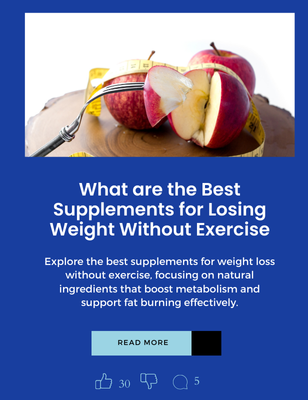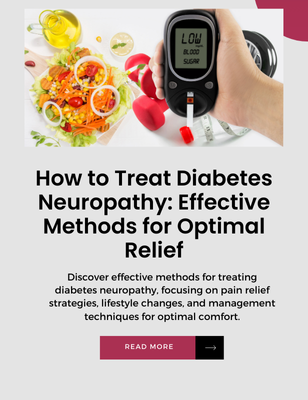Boosting metabolism has become a sought-after goal for those looking to increase energy expenditure, manage weight, and improve overall health. The metabolism is a complex biochemical process wherein the body converts food and drink into energy, with the rate of this conversion varying from person to person. This process is influenced by several factors, including age, sex, muscle mass, and activity levels, but what about the role of supplements? Amidst an ever-expanding market of dietary aids, determining the best supplements to potentially enhance metabolic rate warrants a nuanced approach that takes into account efficacy, safety, and the interaction with individual lifestyles.

The landscape of metabolic-boosting supplements is diverse, with options ranging from vitamins and minerals that are essential for energy production in the body, to thermogenic agents that aim to increase calorie burn. Herbal supplements are often marketed for metabolism, and emerging research on probiotics suggests a possible link with metabolic health. When considering the use of supplements for metabolism, it’s crucial to be informed about which products have scientific backing and how to integrate them safely into one’s diet and lifestyle. Additionally, quality and purity of supplements are paramount, as the market is not uniformly regulated. A multifaceted approach that combines supplementation with healthy lifestyle choices may offer the best results for those aiming to rev up their metabolic engines.
Key Takeaways
- Metabolic rate is influenced by various factors and supplements may help to enhance it.
- Effective metabolic supplements encompass vitamins, minerals, thermogenics, herbals, and probiotics.
- Safety, quality, and lifestyle integration are critical when selecting metabolic supplements.
Understanding Metabolism

Metabolism is the complex network of biochemical processes that the body uses to convert food into energy. This energy is essential for everything from breathing to thinking to exercise. The rate of metabolism varies among individuals, influenced by factors such as age, sex, genetics, muscle mass, and physical activity levels.
There are two primary components of metabolism:
- Basal Metabolic Rate (BMR): The amount of energy expended while at rest. It represents the minimum amount of energy required to keep the body functioning, including breathing and maintaining body temperature.
- Thermic Effect of Food (TEF): The energy used in the process of digestion, absorption, and distribution of nutrients.
Factors such as hormones and diet can influence metabolic rate. For instance, the thyroid hormone is instrumental in regulating metabolism. Additionally, muscle tissue burns more calories at rest than fat tissue.
Physical activity also boosts metabolism temporarily. Higher intensity workouts have a more significant impact on the post-exercise oxygen consumption, which can increase metabolism for hours after exercise.
People often seek supplements to enhance their metabolism. It’s important to approach this with caution, as not all supplements are effective or safe. Here is a brief list of supplements sometimes associated with metabolic support:
- Green tea extract
- Caffeine
- Omega-3 fatty acids
- Protein supplements
It’s crucial to note that these supplements should not replace whole foods or proper nutrition and exercise habits. Consultation with a healthcare professional is advisable before beginning any supplement regimen for metabolism enhancement.
Natural Metabolism Boosters
Metabolism boosters can enhance the body’s ability to burn calories. They provide compounds that support metabolic processes in a natural way.
Protein-Rich Supplements
Protein supplements, such as whey or plant-based proteins, increase the thermic effect of food (TEF), which is the energy expenditure to digest, absorb, and process nutrients. Higher protein intake can lead to a modest boost in metabolism.
- Whey Protein: Offers quick absorption and aids in muscle repair.
- Plant-Based Proteins: Such as pea or rice protein, suitable for those with dairy intolerance.
Green Tea Extract
Green tea extract is lauded for its epigallocatechin gallate (EGCG) content, a powerful antioxidant that can aid in metabolism. Clinical studies suggest that green tea extract may:
- Increase calorie burning: Especially in fat oxidation during moderate-intensity exercise.
- Enhance metabolic rate: Even at rest, contributing to overall energy expenditure.
Omega-3 Fatty Acids
Omega-3 supplements, found in fish oil or algal oil, influence metabolism by balancing blood sugar levels and reducing inflammation. They are linked to:
- Improved insulin sensitivity: Can help prevent metabolic syndrome.
- Regulation of body fat storage: Impacts how the body metabolizes fats.
Supplements with Thermogenic Effect
Thermogenic supplements can accelerate metabolism and increase energy expenditure. These compounds may stimulate the body’s heat production, hence potentially burning calories.
Caffeine
Caffeine is a central nervous system stimulant found in coffee, tea, and various supplements. It potentially raises metabolic rate by increasing thermogenesis and fat oxidation.
- Recommended Dosage: Generally, 100-400 mg per day is considered safe for most adults.
- Sources:
- Coffee
- Green Tea Extract
- Pre-workout Supplements
Capsaicin
Capsaicin is the compound that gives chili peppers their heat. It may boost metabolism through thermogenesis.
- Typical Dosage: Common supplements provide 30-120 mg of capsaicin per day.
- Foods Rich in Capsaicin:
- Cayenne Pepper
- Other hot peppers
Capsaicin can also be found in over-the-counter creams and patches for temporary pain relief.
Vitamins and Minerals for Metabolism

Certain vitamins and minerals play crucial roles in metabolic processes, supporting the body’s ability to convert food into energy efficiently.
B-Complex Vitamins
B-complex vitamins consist of several vitamins that contribute to metabolism. Vitamin B12 (Cobalamin) and Vitamin B6 (Pyridoxine) are essential for the metabolism of proteins and fats. These vitamins aid in the breakdown of carbohydrates, turning glucose into energy. Thiamine (B1) and Riboflavin (B2) also support cellular energy production.
- Thiamine (B1): Critical for carbohydrate metabolism.
- Riboflavin (B2): Helps convert food into energy; essential for cellular function.
Vitamin D
Vitamin D is not directly involved in the metabolic process but supports overall health by assisting with calcium absorption, which is vital for bone health. It also plays a role in immune function and muscle health, which may indirectly affect metabolism.
- Daily requirement: 600 IU for adults (may vary based on age and other factors).
Magnesium
Magnesium is a cofactor for over 300 enzyme systems that regulate diverse biochemical reactions in the body, including protein synthesis, muscle and nerve function, and most importantly, energy metabolism.
- Key functions: Helps convert food into energy; moderates blood sugar levels.
- Sources: Leafy greens, nuts, seeds, whole grains.
Iron
Iron is a critical mineral that is an integral part of hemoglobin, which transports oxygen in the blood. Adequate iron levels are necessary for metabolic energy as oxygen is required for the efficient burning of calories.
- Importance: Supports oxygen delivery to cells; involved in energy production.
- Recommendation: Too much iron can be harmful; adhere to the recommended intake levels.
Herbal Supplements

Herbal supplements can provide a natural way to support metabolic processes. Certain herbs have been traditionally used to enhance bodily functions. Below are specific herbs that have been associated with metabolic benefits.
Ginseng
Ginseng is recognized for its potential to boost energy levels and metabolism. Studies suggest that Panax ginseng, in particular, may help increase metabolic rate. It is often consumed in the form of tea, extracts, or capsules.
Rhodiola Rosea
Rhodiola Rosea may help with reducing fatigue and improving exercise performance. Its active compounds, rosavins and salidroside, are thought to stimulate the metabolism and enhance physical endurance.
Ashwagandha
Ashwagandha is an adaptogen that may help the body manage stress and balance hormones that are crucial for metabolism. Evidence suggests that it can support thyroid function, which is instrumental in regulating metabolism.
Probiotics and Metabolic Health

Probiotics are live microorganisms that, when consumed in adequate amounts, offer health benefits. Metabolism refers to the biochemical processes that occur within a living organism. Probiotics contribute to metabolic health by influencing the gut microbiota, which plays a significant role in digestion, energy production, and overall metabolic function.
A growing body of research suggests that specific strains of probiotics may enhance metabolic health by:
- Improving Gut Barrier Integrity: Strengthening the intestinal lining, reducing the incidence of harmful substances entering the bloodstream.
- Regulating Appetite: Modulating the release of appetite-regulating hormones.
- Enhancing Energy Expenditure: Adjusting the balance of bacteria in the gut could potentially increase the rate of energy expenditure.
When considering probiotic supplements for metabolic health, it is essential to look for clinically-studied strains such as:
- Lactobacillus gasseri
- Bifidobacterium lactis
- Lactobacillus rhamnosus
The effectiveness of a probiotic supplement can also depend on factors like:
- Dose: The concentration of CFUs (colony-forming units) is crucial.
- Viability: Probiotics must be alive and capable of surviving the digestive tract to be effective.
Quality Assurance: Products should be verified for their purity, potency, and shelf stability. Third-party testing and certification can be an indicator of quality.
Consumers should seek advice from healthcare providers to identify the most suitable probiotic for their individual metabolic health needs, considering potential allergies and interactions with medications.
Safety Considerations for Supplements

When considering metabolism-boosting supplements, one must prioritize safety. Supplements are not regulated as strictly as prescription medications, which means the consumer needs to exercise caution.
Consult a Healthcare Provider: Before starting any supplement, it’s important to consult with a healthcare professional, especially for those with underlying health issues or taking other medications.
Ingredients and Dosage:
- Check Labels: Always read the ingredient list to avoid harmful additives or allergens.
- Appropriate Dosage: Follow the recommended dosage and be wary of high doses that could cause side effects.
Quality and Purity:
- Reputable Brands: Choose supplements from reputable companies that provide evidence of third-party testing.
- Certifications: Look for quality seals from organizations like USP or NSF.
Long-Term Use: Long-term safety data on many supplements is lacking. Short-term use under guidance is advisable.
Side Effects and Interactions:
- Monitor Health: Watch for any side effects or adverse reactions.
- Drug Interactions: Be aware that some supplements may interact with prescription medications.
Not a Substitute for Diet and Exercise: Supplements should complement, not replace, a healthy lifestyle. Balanced diet and regular exercise are crucial for metabolism.
Special Populations: Pregnant women, breastfeeding mothers, children, and older adults should be especially cautious as supplements can have different effects in these populations.
By following these guidelines, individuals can better ensure their safety when incorporating metabolism-boosting supplements into their regimen.
How to Choose Quality Supplements

When selecting supplements to enhance metabolism, one should prioritize safety and efficacy. Below are steps individuals can follow to make informed choices:
- Research the Brand: Opt for manufacturers with a strong reputation for quality and transparency. Research if they adhere to Good Manufacturing Practices (GMP).
- Examine Ingredients: Supplements should contain ingredients with scientific backing for metabolic benefits. Key ingredients may include green tea extract, caffeine, and certain B vitamins.
- Check for Testing: Quality supplements often undergo third-party testing to validate their purity and potency. Look for verification marks from organizations such as USP or NSF.
- Read Reviews: Consider user experiences and feedback, but be critical of sources and the presence of potential biases.
- Consult Healthcare Providers: Always consult a healthcare professional before starting any new supplement, especially if one has underlying health conditions or takes other medications.
| Aspect to Consider | Why It’s Important |
|---|---|
| Brand Reputation | Ensures reliability and company accountability. |
| Ingredient Quality | Determines the effectiveness and safety of the supplement. |
| Third-Party Testing | Confirms absence of contaminants and accuracy of label claims. |
| User Reviews | Provides insight into the real-world effectiveness of the product. |
By adhering to these guidelines, individuals can make better choices in selecting supplements that may assist with metabolic support.
Lifestyle Factors Affecting Metabolism

Several lifestyle factors can significantly influence an individual’s metabolism. Understanding these aspects can guide one in optimizing their metabolic rate.
Exercise
Regular physical activity is crucial for boosting metabolism. Cardiovascular exercises such as running, swimming, or cycling elevate the heart rate, increasing caloric burn. Strength training, on the other hand, builds muscle mass, which consumes more calories at rest compared to fat tissue.
Sleep
Adequate sleep is essential for metabolic health. Poor sleep patterns can disrupt hormones that regulate appetite and metabolism. Adults should aim for 7-9 hours of quality sleep per night to maintain optimal metabolic function.
Hydration
Staying well-hydrated aids metabolism. Water is necessary for the body’s metabolic processes, and even mild dehydration can slow down metabolism. The recommended daily water intake varies by individual but usually ranges around 2 liters or half a gallon.
Diet
The composition of one’s diet can affect metabolic rate. Foods high in protein have a higher thermic effect, meaning the body uses more energy to digest them. Fiber-rich foods enhance digestion and can help maintain a steady metabolic rate.
- Protein sources: Chicken, fish, tofu, legumes
- Fiber-rich foods: Whole grains, fruits, vegetables, nuts
Combining Supplements and Lifestyle for Best Results
When individuals seek an enhanced metabolic rate, it’s pivotal to blend targeted supplementation with key lifestyle adjustments.
Supplements known to potentially boost metabolism include:
- Green Tea Extract: Rich in catechins, it may help modestly increase metabolic rate.
- Protein Powders: Provide essential amino acids that can elevate metabolism for a few hours after consumption.
- Caffeine: Can increase energy expenditure and has a thermogenic effect.
However, for optimal outcomes, one should not rely on supplements alone.
Lifestyle habits to adopt alongside supplementation:
- Regular Exercise: Particularly high-intensity interval training (HIIT) and strength training, which can increase metabolic rate.
- Ample Sleep: Aim for 7-9 hours per night to support metabolic health.
- Balanced Diet: Focus on whole foods rich in fiber, proteins, and healthy fats.
- Hydration: Increased water intake can temporarily boost metabolism.
Monitoring and Adjusting:
- Track results and adjust as necessary, since each individual’s body responds uniquely.
- Consult with a healthcare provider before starting any new supplement regimen.
Remember, the synergy between supplements and healthy lifestyle practices often leads to more significant metabolic improvements compared to either approach alone.
Frequently Asked Questions
This section addresses common inquiries related to supplements that can help enhance one’s metabolism, with a focus on different demographics and dietary choices.
What vitamins are recommended for women trying to lose weight?
For women aiming for weight loss, B vitamins such as B6 and B12, as well as vitamin D, and iron may contribute to a healthier metabolism and energy levels.
Are there specific metabolism boosters effective for women above 50?
Women above 50 may benefit from calcium, vitamin B12, and green tea extracts, which can support metabolic processes and bone health, especially during and after menopause.
Which foods can naturally increase metabolic rate?
Foods like green tea, protein-rich items, and spicy foods can naturally increase the metabolic rate due to their thermogenic properties and ability to promote fat oxidation.
What kind of multivitamins support weight loss?
Multivitamins containing a balance of B-vitamins, vitamin D, magnesium, and iron may support weight loss by optimizing energy use and metabolic functions.
How can men effectively enhance their metabolic function?
Men can enhance their metabolic function by ensuring adequate intake of vitamins D and B-complex, chromium, and magnesium, which are crucial for energy metabolism.
What are the top scientifically supported supplements for reducing abdominal fat?
Supplements like conjugated linoleic acid (CLA), green tea extract, and soluble fiber like glucomannan have been studied for their potential to target abdominal fat through metabolic support.
Conclusion
In conclusion, the best supplements for boosting metabolism offer valuable support, including green tea extract, B vitamins, and caffeine. However, it’s crucial to use them in conjunction with a balanced diet and regular exercise for optimal results. Always consult a healthcare professional before integrating new supplements into your routine, especially if you have underlying health conditions or are taking medications. By combining these supplements with a healthy lifestyle, you can effectively enhance your metabolic function and overall well-being.






















